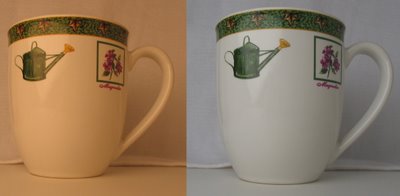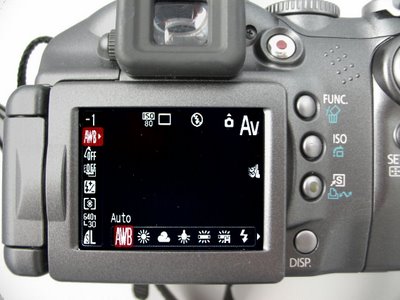Understanding the need to White Balance
 When filming indoors using light such as tungsten globes or florescent light, the color of the light will show in the photo.
When filming indoors using light such as tungsten globes or florescent light, the color of the light will show in the photo. Tungsten globes cast an orange colour on your photo and florescent light will give it blue/green look.
Your camera will have a setting that will let you compensate for these different color lights - it's called White Balance.
While light settings peculiar to shooting on a sunny day or a cloudy day are probably easy to find on your camera, the settings that adjust for artificial light are usually tucked away elsewhere.
Check your camera's manual to see how to adjust for artificial light so you ensure your photos don't have a distracting colour cast. Most cameras, when they adjust for the light, show the adjusted image in the preview display so you can check you've got the right setting.
 When using a flash you won't generally need to adjust for the colour of surrounding light as the flash will cancel this out.
When using a flash you won't generally need to adjust for the colour of surrounding light as the flash will cancel this out. ** In the image above, the same cup has been photographed in tungsten light with two different camera white balance settings. The right hand one (tungsten) correctly balances the orange color cast the one on the left (Auto, the default setting) leaves a bad color cast.
Labels: color correction, fluorescent, tungsten, white balance
